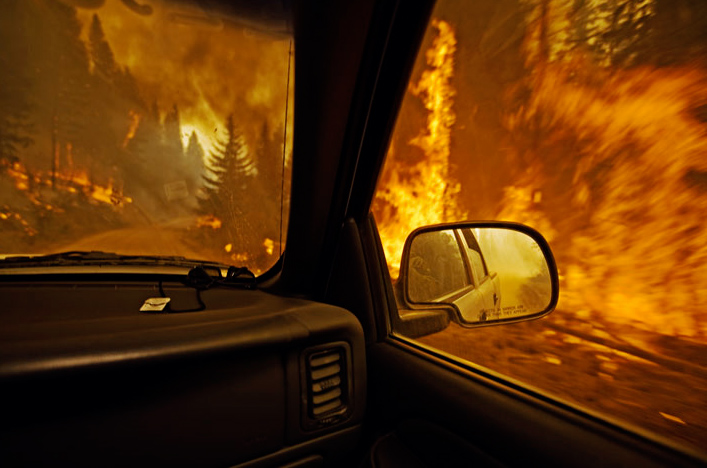How the hell do I get out of here? The answer is sometimes a door, sometimes a drug, sometimes a decision to blow your whole life up. Sometimes it gets dark. But that’s because the question of escape, much like desire, so often stalls out on the scale of the individual. How do we achieve collective escape from the crisis called the present?
“The maximum speed required to break through the earth’s gravitational pull is seven miles a second,” says David Wojnarowicz. “Since economic conditions prevent us from gaining access to rockets or spaceships, we would have to learn to run awful fast to achieve escape from where we all are heading.” Wojnarowicz speaks from the midst of a crisis of AIDS and United States intervention in Central America, the reverbs of which we still feel in waves today. We can’t run fast, so mostly we run in circles. We pretend each door we exit doesn’t lead right back to a familiar room, like a sitcom set with openings on all sides. This issue looks beyond door number one and door number two, turning instead toward a window.

From that window comes the whistle range of Mariah Carey. As Elleza Kelley writes in her love letter to the singer supreme, “we know when we hear her that there is, if not a heaven, at least another realm, another layer, a suspended paradise of honey, rainbows, cumulus clouds.”
We find space to breathe in the crevices of another’s work. Reading gets us elsewhere. Daphne Brooks offers a syllabus-cum-moodboard stemming from Saidiya Hartman’s 2019 book Wayward Lives, Beautiful Experiments: Intimate Histories of Social Upheaval. Brooks urges: “Write with the invigorating humility that you are not alone, that you are the conduit, the surrogate, the effigy for the multitudes.” And so she does, stunningly.
Sometimes we have to write ourselves through the mess of daily living. In “Late Night Is All We Have,” Tiana Reid diarizes a press trip to Dallas, Texas: “U2’s ‘Sweetest Thing’ starts playing on Texas State Highway 114 as we are about to cross the President George Bush Turnpike, and just for a moment I feel like I’m going to throw up. ‘Don’t be cavalier in work zones,’ reads one sign on the highway. I don’t throw up.” Immediate presence can be its own way out.
In an excerpt of The Ribbon at Olympia’s Throat, a book of essays and fragments that explores what Lydia Davis has described as the “expressive power of fetishism” through Édouard Manet’s famous 1863 painting Olympia, the surrealist ethnographer and writer Michel Leiris attends to both illness and the passions of a literal circus. Translated from the French by Christine Pichini, he writes, “The circus—where misfortune, if it exists, is not on the bill—offers a glorious vision of the world: the triumph of man over animals and over his own body, which scoffs at constraints like gravity while intelligence, which makes him king of the creation, knows how to thwart causality, as the illusionist’s thaumaturgy proves.”
For some, escape might look like abandoning oneself to the thrills of a circus, and abandoning others too. Escape, yes, but what do we do once we arrive, and how do we endure after euphoria? Elleza Kelley points us to the site of refuge where we would “rest and house those of us still on the run.” After escape, there is the work of living past the shores of a different world we have tried so hard to find.
